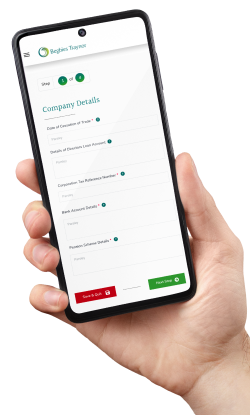Insolvency is a state of extreme financial distress which occurs when a company is unable to pay its outgoings as and when they fall due, or when its liabilities outweigh its assets.
Not every company experiencing financial difficulties is insolvent; short-term cash flow problems does not necessarily equate to an insolvent company. However, it if you are facing financial distress, you should make it a priority to ascertain whether the company is insolvent or not in order for you to plan your next steps.
There are two main tests which can determine whether your company is indeed insolvent.
If you believe your company is insolvent, it is vital that you take action at the earliest possible opportunity. This will ensure more options are available to help rescue your company and turn around its fortunes, while also helping to protect the interests of outstanding creditors.
Concerned about the National Insurance increase?
For the 2024-25 tax year, the rate of employer National Insurance increases from 13.8% to 15% adding yet more pressure onto already squeezed cash flows. If you are worried about the impact this could have on your company’s finances, talk to the experts at UK Liquidators. As licensed insolvency practitioners we can explain your options and help you plot a way forward. Call today on 0800 063 9262.
As the director of a limited company, you have a number of legal duties and responsibilities which must be upheld in the running of the business. Once you know your company to be insolvent, however, you have a number of additional legal requirements to consider.
One of these is to place the interests of outstanding creditors above those of yourself and your fellow directors and shareholders. You should not do anything which may worsen their financial position or increase the risk of them incurring further losses. This means you should not take out any additional borrowing which you know you will be unable to repay, nor should you dispose of company assets for less than their true value.
When a company is insolvent, directors must also be aware of the dangers of making preferential payments. A preference payment happens when a company is judged to have favoured one (or a number) of creditor(s) over others within the same creditor class. This could be by repaying a loan which is secured by a personal guarantee, or paying creditors which the director has a link to, while other creditors suffer financial losses.
As part of the liquidation of an insolvent company, transactions leading up to the company becoming insolvent will be investigated, and if it is judged that a preference has been created while the company is insolvent, directors may face personal liability for some or all of the company’s debt.
Liquidation Portal
For Company Directors

Once you know your company is insolvent, you need to take steps to protect your company and creditors from further losses. This is best achieved by enlisting the help of a licensed insolvency practitioner who will be able to talk you through your current position and recommend the best course of action going forwards.
In many cases, an insolvent company will have to cease trading immediately in order to prevent the situation from escalating and the financial position to worsen. However, there are some instances whereby continuing to trade for a short time may be more beneficial to existing creditors. This is a grey area and expert advice from a licensed insolvency practitioner is the only way of ensuring you are acting in a responsible way when it comes to continuing to trade while insolvent.
By consulting a licensed insolvency practitioner at the early signs of insolvency, you are not only demonstrating your desire to protect your creditors, but you also increasing the chances of rescuing your business going forwards.
There are a variety of formal and informal options for an insolvent company, depending on the company’s financial position, future viability, and desire to continue trading.
Start your online liquidation today
If you have decided liquidation is the right option for your limited company, you can take the first step and begin the process online using our online portal. Starting the process is quick, simple, and can be done at a time that suits you. Your information will be submitted to your local UK Liquidators insolvency practitioner who will be with you every step of the way. Click here to start your company’s liquidation online.
If your company is insolvent you need to take action now. Ignoring the problems you are currently facing will only make the situation worse, and you could be exposing yourself to personal liability in the process.
At UK Liquidators, we understand seeking advice for company worries is a daunting prospect, and this is why we make it our mission to make the process and stress-free as possible for you. We have a network of regional offices located across the length and breadth of the country meaning you are never far from a local expert ready and waiting to help you and your company decide on your next steps.
You can arrange a free no-obligation consultation with one of our expert advisers, who will be able to give you immediate help and actionable advice when it comes to your insolvent company. Take the first steps by calling our team today on 0808 253 5776.
By completing the test, you will receive:
If you are considering liquidation for your company, taking expert advice at an early stage is crucial. At UK Liquidators, our team of licensed insolvency practitioners are committed to providing limited company directors with the help and advice they need to make an informed decision.




Looking for immediate support?
Complete the below to get in touch